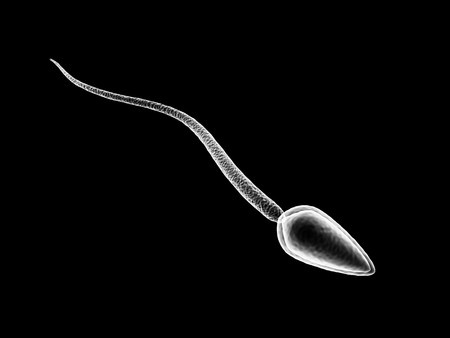Boxers or Briefs? How Men’s Underwear and Lifestyle Impact Sperm Health
April 6, 2016 by Justin Lehmiller
It’s not uncommon for guys to experience fertility problems—even guys who are in the prime of their lives. In fact, some health organizations have claimed that as many as 1 in 5 young men have a low sperm count.
Male fertility issues have multiple causes. Medical conditions are a major contributor, from genetic anomalies to hormone imbalances to certain sexually transmitted infections.
However, several lifestyle factors are also linked to the quantity and quality of men’s “swimmers.” This is important to highlight because it means that medical intervention isn’t always necessary when guys want to improve the health of their sperm.
Indeed, there are some do-it-yourself tricks that can potentially improve a man’s sexual potency. As it turns out, though, some of the most popular DIY tricks might not be as effective as previously thought.
So which lifestyle changes do (and don’t) enhance sperm quality? Here’s a look at what the research says.
Let’s start with the common recommendation to throw away your “tighty whities” and switch to boxers. Countless men have been given this advice in order to improve their odds of becoming a father.
The conventional wisdom behind this idea stems from the fact that the ideal temperature for sperm production is actually a little lower than your normal body temperature. Because boxers give the boys a little more room to breathe than briefs, boxers are thought to be superior for maintaining sperm health.
Is it really true, though?
Two very small studies have lent support to this idea, including one that had just 5 participants who, instead of wearing their own underwear, were given undergarments specially designed to keep their testicles super close to the body. In the other study, based on 12 men, guys simply alternated between wearing boxers or boxer briefs.
While both studies suggested that tighter underwear is bad for sperm, it’s hard to draw definitive conclusions from studies involving so few men.
I have more confidence in a much larger study involving nearly 500 men that was just published in the Journal of Sexual Medicine. This study yielded a very different conclusion: the type of underwear men choose to wear doesn’t really matter.
Researchers looked at what kind of underwear men wore both during the day and at night and related that to several semen parameters, as well as the length of time it took couples to get pregnant. Ultimately, they found that type of underwear worn was unrelated to fertility status, as well as how long it took to conceive.
In short, if you’re worried about your sperm, you probably don’t need to burn the contents of your underwear drawer and start all over.
Instead, you would likely be better served by paying attention to your weight and diet because overall health status is far more clearly linked to semen quality.
As some evidence of this, consider a 2011 study in which obese men aged 20-59 participated in a 14-week weight loss program. Researchers collected semen samples before the program began and after it ended in order to compare them.
In the baseline data (i.e., before the program started), the most overweight men had the poorest quality semen by all metrics, including a lower sperm count and a smaller percentage of motile (i.e., active) sperm. Those men also had lower testosterone levels.
However, and even more importantly, the men who lost the most weight over the course of the study showed the most improvement in sperm quality. Not only was weight loss linked to producing more sperm, but the sperm produced were much healthier. Weight loss was also linked to an increase in testosterone levels.
In other words, diet and exercise appear to be crucial to sperm health.
However, you might want to choose your exercises carefully. In particular, some research suggests that you might not want to overdo it when it comes to bicycling.
In a 2015 study in which non-professional cyclists underwent 16-weeks of bicycle training, sperm quantity and quality decreased—and they remained lower than baseline levels, even after a 30-day recovery period.
This isn’t to say that the occasional bike ride is bad—but if you’re doing it more than 12 hours per week (like they were in this study), it could potentially have reproductive implications.
Beyond diet and exercise, it’s also important to monitor your smoking and drinking habits. Research has found that, regular smokers, alcohol abusers, and those who consume high caffeine levels not only tend to have lower sperm counts, but the sperm they produce tends to be lower in quality.
To sum it up, science suggests that guys who want to increase their sexual potency probably don’t need to worry about buying new underwear. Instead, focus on improving your diet and getting your body in better physical shape—just maybe not through competitive bicycling.
Want to learn more about Sex and Psychology? Click here for previous articles or follow the blog on Facebook (facebook.com/psychologyofsex), Twitter (@JustinLehmiller), or Reddit (reddit.com/r/psychologyofsex) to receive updates.
Image Source: 123RF.com/Maxim Kuzmin
You Might Also Like:

Dr. Justin Lehmiller
Founder & Owner of Sex and PsychologyDr. Justin Lehmiller is a social psychologist and Research Fellow at The Kinsey Institute. He runs the Sex and Psychology blog and podcast and is author of the popular book Tell Me What You Want. Dr. Lehmiller is an award-winning educator, and a prolific researcher who has published more than 50 academic works.
Read full bio >


